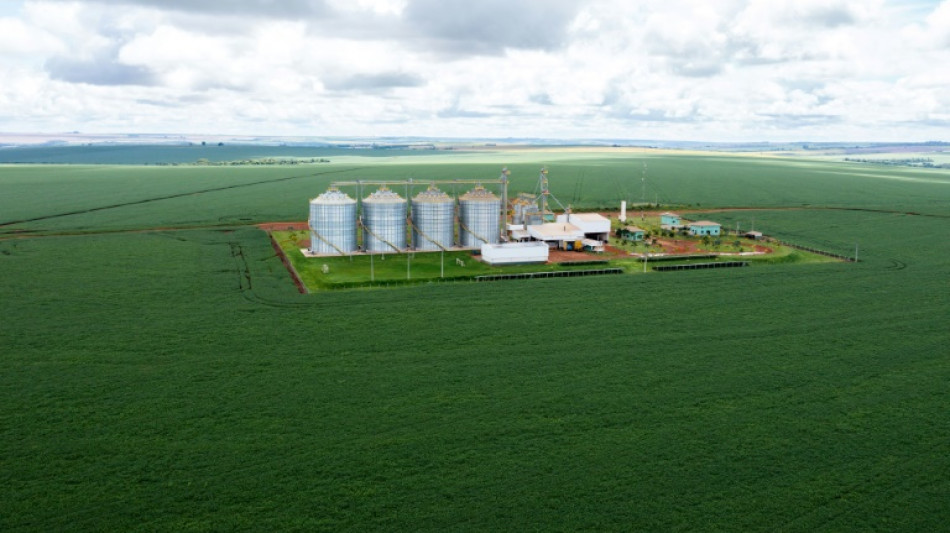
-
 Sausages will sell after thrill-seeker Von Allmen wins Olympic downhill
Sausages will sell after thrill-seeker Von Allmen wins Olympic downhill
-
Swiss racer Von Allmen wins first gold of Winter Olympics

-
 'Wake up': Mum sparks comeback after scare for freeski star Gu
'Wake up': Mum sparks comeback after scare for freeski star Gu
-
Von Allmen wins men's Olympic downhill gold, first of Games

-
 First medals up for grabs at Winter Olympics
First medals up for grabs at Winter Olympics
-
Afghanistan captain Khan harbours dream of playing in Kabul

-
 Lindsey Vonn completes second Winter Olympics downhill training run
Lindsey Vonn completes second Winter Olympics downhill training run
-
Freeski star Gu survives major scare in Olympic slopestyle

-
 Iran FM looks to more nuclear talks, but warns US
Iran FM looks to more nuclear talks, but warns US
-
Hetmyer's six-hitting steers West Indies to 182-5 against Scotland

-
 After boos for Vance, IOC says it hopes for 'fair play'
After boos for Vance, IOC says it hopes for 'fair play'
-
Thousands gather as Pakistan buries victims of mosque suicide attack

-
 Lindsey Vonn completes second downhill training session
Lindsey Vonn completes second downhill training session
-
US pressing Ukraine and Russia to end war by June, Zelensky says

-
 Faheem blitz sees Pakistan avoid Netherlands shock at T20 World Cup
Faheem blitz sees Pakistan avoid Netherlands shock at T20 World Cup
-
Trump refuses to apologize for racist clip of Obamas as monkeys

-
 Takaichi talks tough on immigration on eve of vote
Takaichi talks tough on immigration on eve of vote
-
England's Salt passed fit for T20 World Cup opener

-
 Spain, Portugal brace for fresh storm after flood deaths
Spain, Portugal brace for fresh storm after flood deaths
-
Pakistan bowl out Netherlands for 147 in T20 World Cup opener

-
 Pushed to margins, women vanish from Bangladesh's political arena
Pushed to margins, women vanish from Bangladesh's political arena
-
Crypto firm accidentally sends $40 bn in bitcoin to users

-
 Pistons end Knicks' NBA winning streak, Celtics edge Heat
Pistons end Knicks' NBA winning streak, Celtics edge Heat
-
Funerals for victims of suicide blast at Islamabad mosque that killed at least 31

-
 A tale of two villages: Cambodians lament Thailand's border gains
A tale of two villages: Cambodians lament Thailand's border gains
-
Police identify suspect in disappearance of Australian boy

-
 Cuba adopts urgent measures to address energy crisis: minister
Cuba adopts urgent measures to address energy crisis: minister
-
Not-so-American football: the Super Bowl's overseas stars

-
 Trump says US talks with Iran 'very good,' more negotiations expected
Trump says US talks with Iran 'very good,' more negotiations expected
-
Trump administration re-approves twice-banned pesticide

-
 Hisatsune leads Matsuyama at Phoenix Open as Scheffler makes cut
Hisatsune leads Matsuyama at Phoenix Open as Scheffler makes cut
-
Beyond the QBs: 5 Super Bowl players to watch

-
 Grass v artificial turf: Super Bowl players speak out
Grass v artificial turf: Super Bowl players speak out
-
Police warn Sydney protesters ahead of Israeli president's visit

-
 Bolivia wants closer US ties, without alienating China: minister
Bolivia wants closer US ties, without alienating China: minister
-
Ex-MLB outfielder Puig guilty in federal sports betting case

-
 Milan-Cortina Winter Olympics open with dazzling ceremony
Milan-Cortina Winter Olympics open with dazzling ceremony
-
China overturns death sentence for Canadian in drug case

-
 Trump reinstates commercial fishing in protected Atlantic waters
Trump reinstates commercial fishing in protected Atlantic waters
-
Man Utd can't rush manager choice: Carrick

-
 Leeds boost survival bid with win over relegation rivals Forest
Leeds boost survival bid with win over relegation rivals Forest
-
Stars, Clydesdales and an AI beef jostle for Super Bowl ad glory

-
 Dow surges above 50,000 for first time as US stocks regain mojo
Dow surges above 50,000 for first time as US stocks regain mojo
-
Freeski star Gu says injuries hit confidence as she targets Olympic treble

-
 UK police search properties in Mandelson probe
UK police search properties in Mandelson probe
-
Bompastor extends contract as Chelsea Women's boss despite slump

-
 Milan-Cortina Winter Olympics open with glittering ceremony
Milan-Cortina Winter Olympics open with glittering ceremony
-
A French yoga teacher's 'hell' in a Venezuelan jail

-
 England's Underhill taking nothing for granted against Wales
England's Underhill taking nothing for granted against Wales
-
Fans cheer for absent Ronaldo as Saudi row deepens


'Harvesting data': Latin American AI startups transform farming
For centuries, farmers used almanacs to try to understand and predict weather patterns.
Now, a new crop of Latin American startups is helping do that with artificial intelligence, promising a farming revolution in agricultural giants like Brazil, the world's biggest exporter of soybeans, corn and beef.
Aline Oliveira Pezente, a 39-year-old entrepreneur from the Brazilian state of Minas Gerais, was working at agriculture company Louis Dreyfus Commodities when she noticed a problem in how the farming industry operates in Brazil.
Producers need huge amounts of credit up-front to buy inputs like seed and fertilizer, she says. But lenders are wary given how difficult it is to size up the myriad risks, from the natural -- droughts, floods, crop disease, erosion -- to the financial -- bankruptcy, price crashes and more.
In 2018, Aline and her husband Fabricio launched a startup called Traive that collects massive amounts of agriculture-related data, then analyzes it with AI, breaking down the capital risk for lenders and giving farmers easier access to credit.
"Lenders used to each use their own (risk analysis) model. Imagine like a giant Excel file," Aline told AFP. "But it's very hard for humans, even those who are super knowledgeable of statistics and mathematics, to create equations that capture the nuances of all the variables.
"They were taking three months to do something that we can do in five minutes with way better accuracy," said Aline, who has a master's degree specializing in AI and data analysis from Massachusetts Institute of Technology.
- AI for agriculture -
Seven years on, Traive's clients include agro-industry giants like Syngenta, fintech firms and Latin America's second-biggest bank, Banco do Brasil. More than 70,000 producers use its platform, which has facilitated nearly $1 billion in financial operations, it says.
Aline presented her work this week at the Rio de Janeiro edition of Web Summit, the massive tech gathering dubbed "Davos for Geeks."
Speaking alongside her on a panel called "Harvesting Data: The Next Agricultural Revolution," fellow entrepreneur Alejandro Mieses explained how AI has the potential to reshape farming.
Worldwide, farmers are increasingly turning to AI to boost yields and returns, with applications like self-driving tractors, drones that track crop health and smart cameras that recognize weeds for herbicide treatment.
Mieses's Puerto Rico-based startup, TerraFirma, developed an AI model that uses satellite images to forecast environmental risks like natural disasters, crop disease and erosion.
"We insist on the physics of it, because we believe that is the base point. Understanding how water moves, how wind moves, how different solar exposures operate throughout your farmland," he said at Web Summit, of which AFP is a media partner this year.
The hard part, the panelists said: AI models have to be trained on massive amounts of data.
Although farmers tend to be data-obsessed -- painstakingly tracking environmental conditions, inputs and productivity -- gathering and processing that information around the world is complex.
"It's quite resource-intensive. You need servers, you need an immense repository of data," said Mieses, 39.
"It's the same old story of garbage in, garbage out."
- Climate question -
The agriculture industry faces criticism in countries like Brazil, whose rise as an agricultural powerhouse has also seen a surge of environmental destruction in key regions like the Amazon rainforest, a vital resource against climate change.
Innovation optimists argue that, with the world's population expected to reach nearly 10 billion people by 2050, technologies like AI are humanity's best hope for surviving without destroying the planet.
Mariana Vasconcelos is the 32-year-old chief executive of Brazilian startup Agrosmart, which uses AI to help farmers manage climate risks and produce more sustainably.
"The UN Food and Agriculture Organization says we need to increase food production to feed a growing population. At the same time, we have to produce with less: less land, less deforestation, less carbon footprint. How can we do that without technology?" she said.
"Agriculture is often seen as opposed to nature. But I think technology is showing that actually it can regenerate, restore the environment, work together with nature... Agriculture is headed for a more sustainable model."
F.AbuShamala--SF-PST

